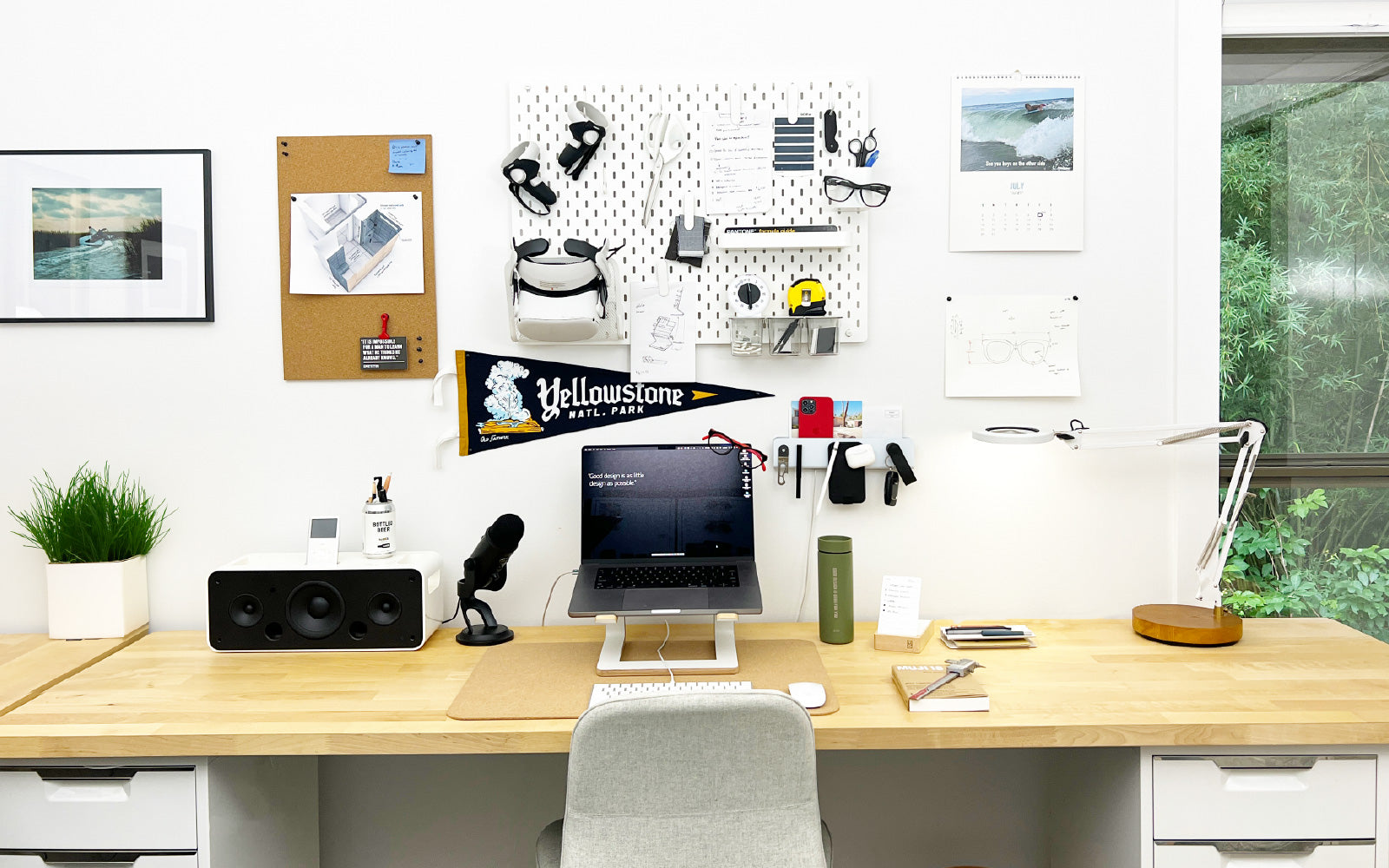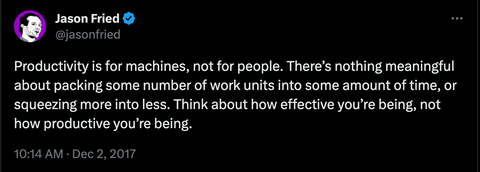
4 Simple Ways to Boost Productivity at the Office
Do you ever feel like time tends to slip away from you? (If not, please tell us your secret.) Work, socializing, time with family, running errands, and just generally *living* keeps us all busy. Often when you do sit down to get work done, it’s hard to find focus because you're understandably distracted—half your brain is still processing those myriad “life admin” tasks that can disturb our ability to focus.
To find your focus and combat those feelings of this-could-be-better productivity, give these tips a go:

Tip #1: Process papers as soon as you get them
Even in a world where email reigns supreme, papers and bills still make their way to your desk. The key to avoiding a major pileup is to sort the paper as soon as it comes in. That means dealing with each piece straight away—random coupons you won’t use go straight into the recycling bin, bills can sit prominently in your ModStation by the door or at your desk, and important papers are filed appropriately (or scanned and shredded). As best as you can, avoid the “I’ll definitely deal with this later” pile; in fact, setting up paperless billing and autopay are great options whenever available.

Tip #2: Do a 5-minute download
This trick doesn’t take much time, but it will take some effort to make it a regular part of your routine. The idea is that you set a timer for five minutes at the end of each day to get organized for the next. Instead of closing your computer and dashing the door the minute you can, do a quick decompression.
Clear any open internet tabs you can, tidy your space, and create a “top three” of to-dos for tomorrow. Whether you’re a working professional, a busy parent, or a college student, jotting down your highest priorities makes it possible to come into the next day feeling on top of your game, and reduces the likelihood of procrastination because you can “eat the frog” as soon as you sit down.
To complement an end-of-the-day practice, you might find it helpful to do a “focused five” in the morning too, so you don’t feel like you’re holding on to a bunch of mental clutter throughout the day. We also love the Analog card system for developing a practice around productivity. Find what works, and then carve out the time for it.

Tip #3: Declutter your desk
As we’ve talked about before, a cluttered workspace can hinder productivity. Do yourself a favor and clear off unnecessary items and use desk drawers to your advantage, or treat yourself to a handsome desk tray to keep things tidy. Get those distractions out of sight and out of mind.
A sleek, practical answer to keeping your desk clear is using a wall-mounted organizer like our Ferris System. Ferris allows you to modify your everyday essentials with magnets, with the ModStation getting it all up and off of your workspace. That way, instead of tossing your phone, keys, wallet, and sunnies somewhere in the general vicinity of your desk, it’s all lined up and ready to roll when happy hour beckons.
Controlling your cables and cords is another surprisingly simple way to calm visual clutter. If you only have a few, ties or clips may do the trick. If you have more, consider a tidy cable box, or mounting a surge protector to your desk or wall. Labeling your cords makes life a lot easier when you inevitably play the plug/unplug/plug game when your printer isn’t working... Color-coded ties or a small piece of masking tape and a permanent marker will do the trick.
And if your work-from-home setup just has you fussing with your MacBook cord, check out Stella and Blockhead from our friends at Ten One – these two simple tools prove that little fixes can make a big difference.

Tip #4: Develop a routine
One of the most impactful changes you can make is perhaps the slowest to take root. Having a solid routine—especially a consistent morning routine—is an unmistakable component in the lives of the world’s greatest thinkers and doers. (And honestly, who are we to not pay attention to the likes of Ben Franklin and Nikola Tesla?)
The thing about routines is that there is no one-size-fits-all solution. It will probably take a bit of experimentation to find what works for you, but it’s worth the effort to create a morning routine and end-of-day shutdown routine (perhaps including the “five-minute download” mentioned above!). For a physical marker of your unique schedule and needs, this customizable analog clock by cw&t can be a helpful tool. Read more about the power of morning routines in the My Morning Routine book.
The most important thing to remember is that habits develop over time, not overnight. For example, if you decide your new wake-up time is three hours earlier than it has been, a cold-turkey approach may result in a face-on-desk nap by noon. Instead, gradually push your alarm up by 15 minutes each day (or whatever works for you). Small, slow, and steady is where you’ll see the changes that stick.

Bonus Tip: Move It
Well well well, if it isn't another study saying that exercise is good for us. In this case, it's good for our brains, too. "Exercise is something that when you spend time on it, it will buy you time when you start to work," explains Wendy Suzuki, professor at New York University's Center for Neural Science. So give your brain-powered tasks a boost in productivity by moving your body.
Let’s wrap it up
Workflow tweaks like these and environmental optimizers like those shared in Matthew Encina's calm and constructed approach ideally result in working fewer hours—not squeezing in MORE work. Check out this article for evidence that a concentrated, intentional five-hour workday can be entirely more productive than one that lasts eight or nine hours. As the author explains, productivity becomes more than a question of how much time you’re clocking, but rather how you manage your energy, distractions, and mental capacity. 
So when it comes to the topic of productivity, we love Austin Kleon's insight that we should "maybe stop worrying so much about productivity and getting things done. Worry about things worth doing." With that in mind, go ahead and try little modifications or big shifts to give yourself a nudge in the direction of being not just more productive, but more effective and fulfilled—and let us know what you find makes a difference in your workday.


